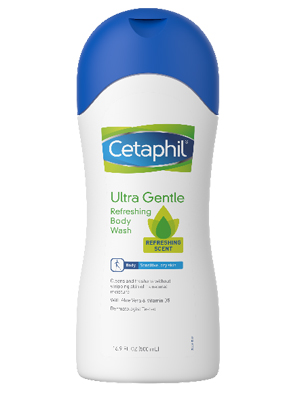Combating Dry Skin this Summer Interview

Combating Dry Skin this Summer
As the weather starts to heat up and we bare all, smooth skin is a must! Dry skin is often associated with the cooler winter months, but a number of summer activities can also cause your skin to become dehydrated - sunscreen, saltwater and air con all contribute to your skin's lack of moisture.
Using the right skincare products can make a huge difference to combat dry skin, but are you using the right ones for your skin type?
Dermatologist, Dr Katherine Armour has everything you need to know about how to achieve summer-ready skin!
 Interview with Dr Katherine Armour, Dermatologist
Interview with Dr Katherine Armour, Dermatologist
Question: How can we start preparing our skin for the summer sun?
Dr Katherine Armour: Products that you used during the winter months will not always work the best as it starts to get hotter. One of the best ways to prepare your skin for the sun is to stay hydrated! This includes not only your skin, but your body too. Drink plenty of water and eat healthily. Remember that drinking water is great for your general health, but won't hydrate your skin. To do this, you need to apply a moisturizer once to twice daily (and especially after showering). To do some further prep, change your moisteriser to one with lightweight ingredients that will hydrate, but avoid blocking your pores. Also be careful of what products you use in shower – especially if you have sensitive skin Avoid having your showers too hot. It's best to use a soap-free body wash. Look for one that is gentle on the skin and has active ingredients like Aloe Vera and Vitamin B5.
Question: What is the best way to prevent dry skin during Summer?
Dr Katherine Armour: Hydrate your skin every day. Your body loses a lot of moisture during summer so it is essential to hydrate your skin with nourishing moisturisers.
Protect your skin against the sun's rays. You should never skip your sunscreen. If you're concerned about clogging your pores with sunscreens, look for light products including those that are "oil-free."
Question: Why is it vital this routine starts in the shower?
Dr Katherine Armour: While we usually focus on finding the right product to cleanse our face, it's equally important to find the right body wash for your skin. Using the wrong wash in the shower can strip the skin of its natural oils and dehydrate it even more. Combat this by starting your hydration routine in the shower by finding the right wash for your skin type! We should all aim to use a soap-free body wash.
If you have sensitive or oily skin, use a shower wash that is gentle on the skin and will moisturise and soothe, with active ingredients like Aloe Vera, Vitamin B5 and oatmeal. This will ensure the skin's oil is replenished and not stripped away! Excessively stripping your skin's oil, will only lead to irritation of your skin and a compensatory increase in oiliness.
Question: How can we stop sunscreen and saltwater dehydrating our skin?
Dr Katherine Armour: Salt water can be helpful for your skin for a number of reasons. It can combat skin infections, reduce inflammation, and remove dead skin cells. Although salt water has many benefits, be careful to not overdo it.
Swimming in salt water dries your skin out fast, and it doesn't always all wash off after a quick rinse in the shower. Salt tends to linger on your skin, meaning its drying effects are long-lasting. After spending a day at the beach, use a soap-free wash that will moisturise and soothe and not strip the oil on your skin.
Most sunscreens today will not dehydrate your skin. In fact, most sunscreens contain emollient (moisturizing ingredients) to soothe the skin. The main products that may be drying are gel-based or aerosol sunscreens. If you have dry or sensitive skin, it's best to avoid these. If you have a tendency to dry skin, it's fine to apply a moisturiser under your sunscreen.
Question: How will we know if we are using the right products for our skin?
Dr Katherine Armour: Finding the right products to use on our skin is never a simple task. There are so many options on the shelf.
It may be easier to find out which products are wrong for our skin. It might take some trial and error to find the right products for your skin type. The following are some indication you may be using the wrong product:
Your skin is itchy or red after using a new cream or face wash. This can be caused by irritation or allergy. Allergy can be due to preservatives, fragrance or active ingredients in a moisturizing product.
Your skin feels tight. This suggests that your skin is irritated and the epidermal barrier may be disrupted.
Your skin breaks out ALL THE TIME. This may due to blocking of your pores or a rash called perioroficial dermatitis. This is an inflammatory condition of the skin which can mimic acne. Perioroficial dermatitis may not settle when you stop the causative product. If you're not sure about this, see your general practitioner or dermatologist.
Question: What are the most common mistakes we are making with our skin products?
Dr Katherine Armour: Showering using harsh soaps. Many bar soaps are harsh and drying, removing every bit of oil and hydration from your skin. Look for a body wash that will cleanse your skin of pollution, oil and bacteria, but still replenishes your skin's oil. If you have sensitive skin, look for a wash that contains ingredients that soothe and hydrate the skin
Over-cleansing. Cleansing too much strips the skin it of its natural oils that keep it healthy and balanced, causing the skin to feel taut and tight. Over-cleansing also damages the epidermal barrier which protects the skin from the outside world. A good cleanser gently removes dirt, make up, bacteria and oil without stripping the skin or making it feel tight.
Exfoliating too much. Exfoliants can temporarily help the skin feel smoother by removing dead skin cells. However, they don't unblock pores or have any enduring effect on the skin.
Using toner. No one benefits from using a toner. Toners tend to contain ingredients that disrupt the skin barrier and cause irritation.
Interview by Brooke Hunter
MORE





